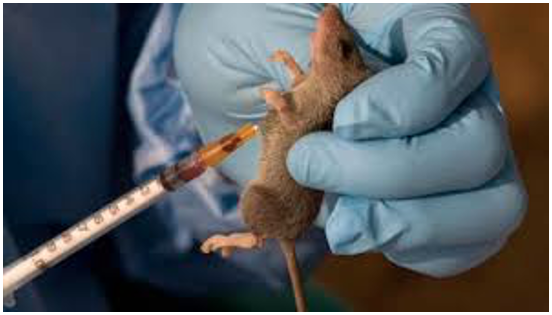Makurdi Doctor Warns Escalation of Lassa Fever

– By Prosper Okoye
Lassa fever according to Nigeria Centre for Disease Control (NSCDC) is an animal-borne, or zoonotic, acute viral illness. It is endemic in parts of West Africa including Sierra Leone, Liberia, Guinea and Nigeria. Neighboring countries are also at risk, as the animal vector for Lassa virus, the “multimammate rat” (Mastomys natalensis) is distributed throughout the region.
The illness was discovered in 1969 and is named after the town in Nigeria where the first cases occurred. An estimated 100,000 to 300,000 infections of Lassa fever occur annually, with approximately 5,000 deaths. Surveillance for Lassa fever is not standardized; therefore, these estimates are crude. In some areas of Sierra Leone and Liberia, it is known that 10-16% of people admitted to hospitals annually have Lassa fever, demonstrating the serious impact the disease has on the region.
A Markudi Medical Practitioner and member, Nigerian Medical Association, Dr. Solomon Wombo, has called on the people of Benue state, to take proactive measures against the contraction and escalation of the deadly Lassa fever virus.
This Follows the recent confirmation of Lassa Fever outbreak in Benue State, and the resultant death of a World Health Organization medical doctor, Samuel Nyityo, attached to the World Health Organization Office, in Makurdi, by the State’s Commisioner of Health, Hon. Joseph Ngbea.
“Why prevention should be emphasized, is because mortality rate of the victims of lasser fever is usually high. Not 100 percent, but the chances of survival when infected is very slim.” Dr. Wombo stated, while speaking to the reporter in a telephone interview.
He continued, Lassa Fever as an acute viral haemorrhagic illness, causes bleeding in the person infected. One who contracts the virus, can also have such symptoms as: coughing, difficulty in breathing,and vomiting.
Basically, the fever is caused by contaminated rodents and bush meats. It can also be contracted by the fluids (urine, blood and sweat) of a person that is infected. “This is why medical practitioners are more at risk. most of us do not contact lasser virus from the rats, but, we have to treat patients who come in contact with the infected rodents.” He asserted.
The medical doctor said, total social distancing should not be encouraged, but, “excessive interpersonal contact, and the consumption of rats and other bush animals must be restrained at the moment.”
He further admonished Benue state occupants to maintain strict personal and environmental hygiene; food and other items for consumption should be properly covered and stored, to prevent being contaminated by the rodent carrying virus.



